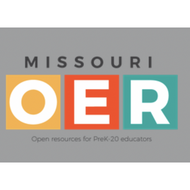
(View Complete Item Description)
A Reference for Creating Accessible Office Documents
Short Description:
With much of the world gone digital, learning to create documents that are accessible to everyone is becoming a necessary skill. Intended for a general audience, this free resource reviews a wide range of document authoring applications, including the tools they contain for creating accessible documents, and tests them to ensure they do not contain potential barriers. Learn how to create accessible word processed documents, spreadsheets, presentation slides, and PDF documents, among others, so they are accessible to everyone.
Long Description:
With much of the world gone digital, learning to create documents that are accessible to everyone is becoming a necessary skill. Intended for a general audience, this free resource reviews a wide range of document authoring applications, including the tools they contain for creating accessible documents, and tests them to ensure they do not contain potential barriers. Learn how to create accessible word processed documents, spreadsheets, presentation slides, and PDF documents, among others, so they are accessible to everyone.
Word Count: 113386
(Note: This resource's metadata has been created automatically by reformatting and/or combining the information that the author initially provided as part of a bulk import process.)
Material Type:
Textbook




















